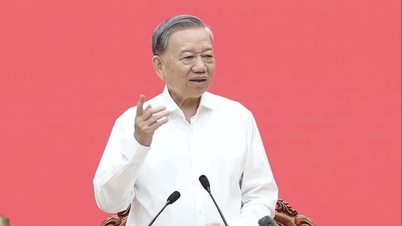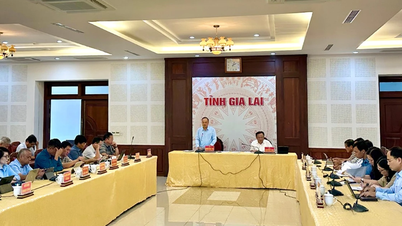The first notable decision in tax reform is to abolish the lump-sum tax on business households. Accordingly, from June 1, Decree 70/2025/ND-CP amending and supplementing Decree 123/2020/ND-CP regulating invoices and documents officially took effect.
Thus, about 37,000 business households and individuals (with revenue of VND 1 billion/year from many industries) switched to issuing electronic invoices generated from cash registers connected to data from tax authorities and based on actual revenue instead of the long-standing lump-sum tax method. From 2026, business households (about 6 million households) will officially end the lump-sum tax mechanism, replacing it with self-declaration and tax payment based on actual revenue.
The abolition of lump-sum tax for business households can be considered a “turning point” for the tax sector. At the same time, this policy has achieved all three major goals: concretizing Resolution 68, opening up opportunities to upgrade business households to become enterprises; aiming for a fair, transparent and effective tax policy for all subjects; overcoming the long-standing situation of lump-sum tax management for business households, causing loss of state budget revenue.
Recently, the Ministry of Finance has conducted research and comprehensively reviewed and assessed tax laws to report to competent authorities for consideration of comprehensive and synchronous amendments and supplements to tax laws in Vietnam's tax system. Up to now, the Ministry of Finance has reported to the Government and the National Assembly on the amendments and supplements to important tax law projects, namely the Law on Value Added Tax (approved by the National Assembly in November 2024); the Law on Special Consumption Tax (amended) and the Law on Corporate Income Tax (amended) - submitted to the National Assembly for comments in May...
The completion of tax policies is expected to contribute to the reasonable mobilization of resources for the State budget to carry out the tasks set out in the process of socio -economic development in the new period. In addition, the policy also has incentives to contribute to nurturing and developing long-term revenue sources for the State budget, especially for business households and small and medium enterprises.
Comprehensive reform of the tax system also helps ensure that tax policies are applied equally and without discrimination among economic sectors, as well as promoting administrative procedure reform, creating a favorable environment for people to comply with tax laws; ensuring correct and sufficient collection to the State budget.
The above changes are the basis for Vietnam to integrate more deeply with the world when the tax policy system is oriented towards international practices. In 2000, when Vietnam and the United States signed the Bilateral Trade Agreement (BTA), many contents were signed except for the tax content, when the United States side said that Vietnam's tax policy at that time "lacked transparency" and "did not comply with international practices".
Therefore, this comprehensive reform of Vietnam's tax system has a special significance: meeting additional conditions for the United States to recognize Vietnam as a market economy.
Source: https://www.sggp.org.vn/cuoc-cach-mang-ve-thue-post797872.html


























































































Comment (0)